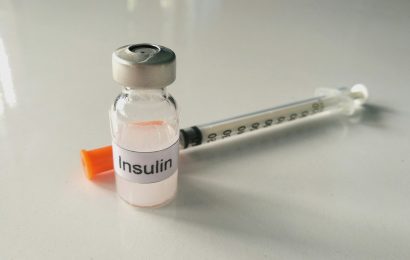The dog days of summer are here. Many of us will soon be headed back to school or work (hopefully after a well-deserved vacation). You might be thinking that it’s time to try and get back in shape. This week, I’ll address a few hot topics related to weight.
Eat a bigger breakfast, drop more weight
All you breakfast-skippers, listen up! If you want to shed a few pounds, it pays to eat a substantial breakfast, according to researchers. In a study published in the journal Obesity, 93 women followed one of two 12-week diet plans. The first plan involved eating 700 calories at breakfast, 500 at lunch, and 200 at dinner. The second plan was just the opposite: 200 calories at breakfast, 500 at lunch, and 700 at dinner. The types of food didn’t vary (and yes, some of the food choices included sweets).
Those who ate bigger breakfasts lost nearly 18 pounds and three inches off their waists, compared to just 7 pounds and 1.4 inches in the small breakfast group. In addition, those eating the 700-calorie breakfast had lower levels of the hormone ghrelin, which meant that their appetites were better controlled throughout the day. Oh, and these women also had lower blood glucose, insulin, and triglyceride levels, too. Kind of makes you want to eat a good breakfast…
Coming one day: Take a pill instead of exercising
We all know that we should exercise. But life often gets in the way. Wouldn’t it be great to just swallow a pill and be fit? It sounds futuristic but it could happen. Researchers published a study in the journal Nature that involved injecting overweight mice with a compound called Rev-erb alpha, a protein that controls circadian rhythms and biological clocks. These mice ate a high-fat diet but were still able to lose weight and lower their cholesterol. They also used more oxygen and burned more energy than the control group mice, even though they didn’t do any more exercise. In fact, these mice were rather lazy.
What happened? The injected mice formed new mitochondria (the powerhouses of cells) after getting the Rev-erb alpha, mimicking the effect of exercise. The researchers hope that one day this substance could be used in people who are unable to exercise due to physical or medical reasons. Of course, the intent is not to turn us into sloth-like pill poppers; getting exercise is likely always going to be recommended!
Being “financially fit” — will money motivate you to lose weight?
Not feeling particularly motivated to lose weight? What if you were paid to lose weight? The Mayo Clinic did a study of 100 of their obese employees. Half of them received nutrition counseling, a gym membership, and monthly weigh-ins. The other half received the same, but were also given money. If they lost four pounds a month, they were given $20. If they didn’t lose weight, they had to pay $20.
After a year, the paid group lost an average of nine pounds while the unpaid group lost an average of two pounds. And not surprisingly, when the study ended, the paid group kept coming back, while the unpaid group lost interest.
In a similar vein, employees who put up their own money to lose weight and received a refund if they lost weight lost more weight than employees who simply joined a weight-loss program. Many employers who offer employee wellness programs are looking into this kind of model.
Do you trust your doctor to give you weight-loss advice?
Does your primary-care doctor give you weight-loss advice? If so, do you welcome it or dismiss it? Researchers at Johns Hopkins Bloomberg School of Public Health looked at physicians’ BMI (body-mass index) and how that might impact the trust and perceptions of their overweight patients.
They surveyed 600 overweight and obese people, asking them a series of questions regarding trust in their doctor and trust in any kind of diet or weight loss advice given by their doctor. They were surprised by what they found: Overweight people were more likely to trust diet advice from their doctor if the doctor was also overweight. Yet, overweight people who went to overweight doctors for weight loss advice were more likely to feel judged by their doctor than if their doctor was not overweight.
On a side note, according to a study in the Journal of Academic Medicine, up to 40% of medical students are biased against overweight people. Having such a bias can affect the type and quality of medical care that overweight and obese people receive.




